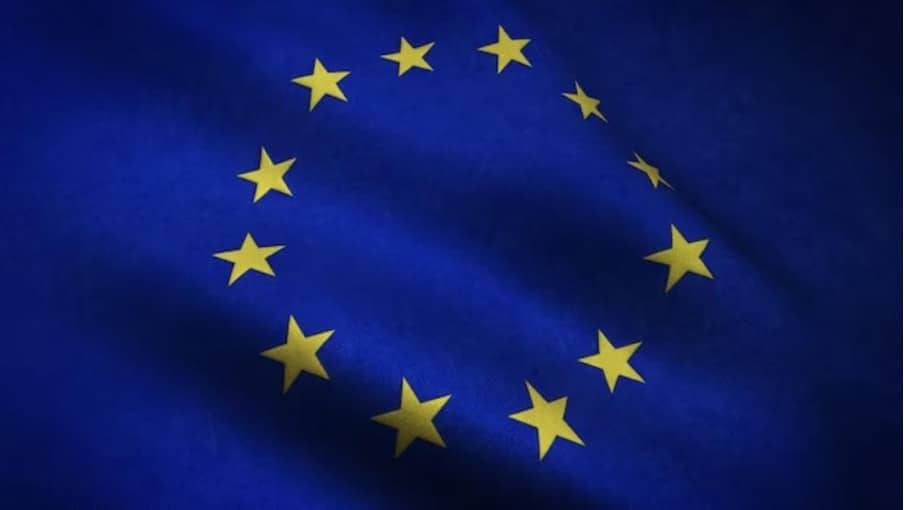Essential Guide for Businesses Expanding into Europe: Key Points on the EU Legal Framework and Laws

EU law refers to legislation established by the EU on behalf of certain policy areas that have been delegated by the member states. EU law takes precedence over the constitutions and laws of the member states. A major personalityistic of EU law is that it involves the use of common legislation across multiple countries.
Depending on the type of EU law, there may be instances where member states replace their national laws with EU law. It is essential to verify whether the same law is used among EU member states or if each member state has its own national laws in place, and to apply them appropriately.
Here, we will explain the basics of EU law and the legal system within the EU.
The History of the EU and the Evolution of Its Member States

The EU, or European Union, is a political and economic union that has been advancing a wide range of initiatives based on the Treaty on European Union, including an economic and monetary union, a common foreign and security policy, and cooperation in policing and criminal justice.
The headquarters of the EU, which serves as the hub for its activities, is located in Brussels, Belgium. A common currency is essential for the member states to form a single market system. In 1999, the euro was introduced as the EU’s single currency.
As of March 2024, the EU has 27 member states. The original six founding members have expanded through six rounds of enlargement to reach the current total of 27 countries.
| Decade | Member States |
| Founding Members (1952) | Belgium, Germany, France, Italy, Luxembourg, Netherlands |
| First Enlargement (1973) | Denmark, Ireland, United Kingdom |
| Second Enlargement (1981) | Greece |
| Third Enlargement (1986) | Portugal, Spain |
| Fourth Enlargement (1995) | Austria, Finland, Sweden |
| Fifth Enlargement (2004, 2007) | Cyprus, Czech Republic, Estonia, Hungary, Latvia, Lithuania, Malta, Poland, Slovakia, Slovenia |
| Bulgaria, Romania | |
| Sixth Enlargement (2013) | Croatia |
In 2020, the United Kingdom withdrew from the EU. Additionally, Iceland, Serbia, Turkey, North Macedonia, and Montenegro are currently candidate countries for membership. The EU of today has evolved from the European Coal and Steel Community (ECSC), which was established by Belgium, Germany, France, Italy, Luxembourg, and the Netherlands.
The traditional structure of the EU consisted of three pillars: the European Community (EC), the Common Foreign and Security Policy (CFSP), and Police and Judicial Cooperation in Criminal Matters (PJCC). Now, under the Treaty establishing a Constitution for Europe, these three structures have been unified. The EC has been absorbed into the EU, which has been granted a single international legal personality. All common bodies used within the EU have been replaced by the Union, enabling the EU to sign international treaties in its own name.
The EU Legal System: Vastly Different from Japan’s

The legal system of the European Union (EU) is comprised of three main components: primary law, secondary law, and case law. Let’s explain each category in detail.
| Category | Description |
| Primary Law | The foundational treaties related to the establishment of the EU and its amending treaties. |
| Secondary Law | Legislation derived from the primary law’s foundational treaties, collectively referred to as EU law. |
| Case Law | While case law is not binding, it contributes to the development of EU law. The Court of Justice of the European Union, with exclusive jurisdiction, interprets primary and secondary law. |
Primary Law: The Treaties Founding the EU
Primary law refers to the treaties that constitute the foundation of the EU, such as the EU’s foundational treaties. These treaties are drafted during intergovernmental conferences involving all member state governments and are adopted and established by unanimous consent of all member states. Primary law comes into effect through the ratification procedures of all member states. In Japan, primary EU law would correspond to the Japanese Constitution.
The Treaty on the European Union (TEU) and the Treaty on the Functioning of the European Union (TFEU) were revised by the Lisbon Treaty, becoming the current foundational treaties. The protocols and annexes attached to the TEU and TFEU are also part of the foundational treaties. The European Parliament and the European Commission, as legislative bodies of the EU, are required to comply with primary law. Primary law includes provisions on the following:
- EU’s objectives, goals, and principles
- Institutional framework
- Legislative procedures
- Key aspects of various policies
- Rights of EU citizens
In addition to the aforementioned foundational treaties, the Charter of Fundamental Rights of the EU, which holds the same legal value as the treaties, and the general principles of law relied upon by the Court of Justice of the European Union are included in primary law. Primary law has played a significant role in the development of human rights law within the European Community.
Furthermore, as all international organizations are established based on international law, customary international law is also considered primary law. Customary international law refers to the rules that must be observed in the international community. In the EU, since most matters are governed by codified rules, customary international law is not always considered primary law.
Secondary Legislation: ‘EU Law’ Enacted Based on the Founding Treaties
Secondary legislation refers to laws that are derived from the primary legislation, the founding treaties, and are known as EU law. Any secondary legislation that contradicts primary law is invalid. When enacting secondary legislation, it is necessary to indicate the legislative intent.
If the legislative intent is not indicated or is insufficient, it may be declared invalid due to a serious procedural violation. Domestic laws of the member states take precedence and often relate to corporate activities.
There are five types of secondary legislation: regulations, directives, decisions, recommendations, and opinions. They are categorized based on their scope of application and the strength of their legal binding force.
Regulations
Regulations have direct application in member states, taking precedence over national laws and directly affecting governments, companies, and individuals. Regulations are effective immediately across all member states without the need for national legislation and have direct legal effect on governments within the member states. Member states are prohibited from obstructing their direct effect.
Regulations have an effect almost equivalent to parliamentary statutes and are considered one of the most powerful forms of EU law.
An example of a regulation is the REACH Regulation, which is the regulatory framework for the management of chemicals in Europe. Chemical substances manufactured or used within the EU are subject to registration, evaluation, authorization, and restriction obligations.
Directives
Directives have direct legal effect on the governments of member states. They set policy objectives and implementation deadlines, and upon adoption, member states are required to take measures such as national legislation to achieve these objectives within the deadline. The choice of measures is left to the member states, and directives do not directly apply to companies or individuals.
Examples of directives include the WEEE Directive and the RoHS Directive. The WEEE Directive, an EU law concerning waste from electrical and electronic equipment, was established with the aim of reducing waste through reuse and recycling and was enacted and came into force in February 2003.
The RoHS Directive is an EU law that regulates the use of certain hazardous substances to prevent harm to people and the environment. Currently, the use of ten types of substances is restricted.
Decisions
Decisions have direct legal effect on specific governments, companies, or individuals of member states. Decisions are individual and concrete measures, and the legislative procedures for their adoption are determined by the policy area they address. Decisions are incorporated when existing EU laws, harmonized standards lists, or European standards are revised.
An example of a decision is the addition of exemptions to the RoHS Directive. The RoHS Directive defines exemptions for applications where the use of hazardous substances is permitted because technical alternatives are not feasible.
Recommendations
Recommendations clearly express the European Commission’s expectation for governments, companies, and individuals of member states to take certain actions or measures. Recommendations do not have legal binding force. However, they do possess political influence and have an indirect effect in intending the enactment of necessary legislation within the member states.
Opinions
Opinions clearly express the stance of the European Commission, the Council of the European Union, and the European Parliament on specific topics. Opinions do not have legal binding force.
Summary: Consult with a Lawyer Familiar with EU Law When Expanding Business into EU Member States

Japan’s legal system is structured with the Constitution at its apex, followed by treaties, laws, government ordinances, ministerial ordinances, and regulations, making a total of six categories. In contrast, the EU legal system is personalityized by its simplicity, consisting of primary law, secondary law, and case law.
Japan applies only domestic law. However, in the EU, there is both the domestic law of each member state and EU law, which is enacted by the EU and applied commonly among member states. A distinctive feature of EU law is that it takes precedence over domestic law and is applied uniformly across member states.
Within EU law, directives are particularly noteworthy as they require implementation into the domestic law of each member state. Since there can be variations in how each member state enacts these directives, careful attention is needed when interpreting them.
Given the many differences between EU law and Japanese law, it is advisable to consult with experts if there are any uncertainties. If you are looking for a legal business partner, please contact Monolith Law Office. Monolith Law Office specializes in the IT field and provides services in IT and intellectual property law, as well as reputation damage control.
Guidance on Measures by Our Firm
Monolith Law Office is a legal practice with extensive experience in both IT, particularly the internet, and law. In recent years, global business has been expanding increasingly, and the need for legal checks by experts is growing more than ever. Our firm provides solutions related to international legal affairs.
Areas of practice at Monolith Law Office: International Legal Affairs & Overseas Business[ja]
Category: General Corporate

![[April 2023] Strengthening the Prohibition of](https://monolith.law/en/wp-content/uploads/sites/6/2026/01/a9e0aa1f810f4f4d3f23e1b55cd8b7bf.webp)



















